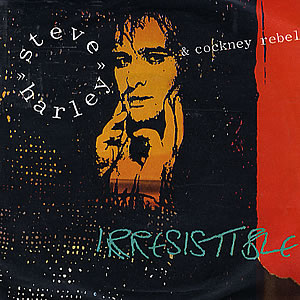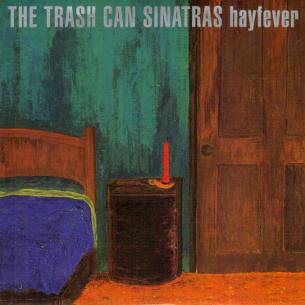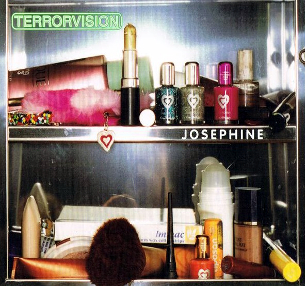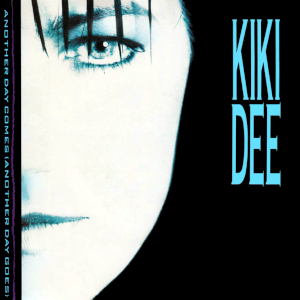
"The Politics of Dancing" is the debut single by the English new wave band Re-Flex, released in 1983. It is the title track to their debut studio album. The song was written by keyboardist, backing vocalist, and band co-founder Paul Fishman.

"Target Practice" is a song by British musician Belouis Some, released on 21 May 1984 as his first major label single after his 1981 debut "Lose It to You". The song was written by Some, and produced by Peter Schwier and Ian Little.

"Where the Streets Have No Name (I Can't Take My Eyes Off You)" is a song by English synth-pop duo Pet Shop Boys. The song is a medley of U2's "Where the Streets Have No Name" and "Can't Take My Eyes Off You", a 1967 song by Frankie Valli, though in an arrangement informed by the 1982 disco version of the song by the Boys Town Gang rather than the original. The song accompanied "How Can You Expect to Be Taken Seriously?", the third single from their fourth studio album, Behaviour (1990), as a double A-side in the United Kingdom (both singles were released separately in the United States). Released in March 1991 by Parlophone, the song became the duo's 15th consecutive top-20 entry in the UK, peaking at number four on the UK Singles Chart.

"Irresistible" is a song written and recorded by British singer-songwriter Steve Harley. It was released three times as a single; the first being in 1985 as a non-album single under his band's name Steve Harley & Cockney Rebel. In 1986, a remixed version of the song was released by Harley as a solo single in the UK, and in 1992, he re-released this version as a single in Europe from his solo album Yes You Can. "Irresistible" was written by Harley and produced by English producer Mickie Most.

"Give It Up" is a song by English band Talk Talk, released by Parlophone in 1986 as the third single from their third studio album The Colour of Spring. The song was written by Mark Hollis and Tim Friese-Greene, and produced by Friese-Greene. "Give It Up" peaked at number 59 in the UK Singles Chart.

"Love Shines" is a song by British-American band Fleetwood Mac. The song was released as a single in 1992 to support the compilation album 25 Years – The Chain. This was the first single released after the departure of vocalist Stevie Nicks and guitarist Rick Vito. The song was released as a single in Europe, but in North America, "Paper Doll" was released instead.

"Hayfever" is a song by Scottish band The Trash Can Sinatras, which was released in 1993 as the lead single from their second studio album I've Seen Everything. The song was written by all five band members and produced by Ray Shulman. "Hayfever" reached No. 61 in the UK Singles Chart and No. 11 in the Billboard Modern Rock Tracks chart.

"Rocket Man" is a song written by English musician Elton John and songwriter Bernie Taupin and performed by John. It was originally released on 17 April 1972 in the US, as the lead single to John's album Honky Château. The song first charted in the UK on 22 April, rising to No. 2 in the UK Singles Chart and No. 6 in the US Billboard Hot 100, becoming a major hit single for John.

"Josephine" is a song by English rock band Terrorvision, which was released in 1998 as the lead single from their fourth studio album Shaving Peaches. The song was written by Terrorvision and produced by Edwyn Collins. "Josephine" reached No. 23 in the UK Singles Chart and remained in the Top 100 for two weeks. The song's music video was directed by Tomas Masin.

Beam of Light is the second studio album from Dutch singer Patricia Paay, which was released by EMI in 1975.

"The Soul of My Suit" is a song by English rock band T. Rex, which was released in 1977 as the second single from their twelfth and final studio album Dandy in the Underworld. The song was written and produced by Marc Bolan. "The Soul of My Suit" reached number 42 in the UK Singles Chart and remained in the top 50 for three weeks.

"Celebrate Summer" is a song by English rock band T. Rex, which was released in 1977 as a non-album single. The song was written and produced by Marc Bolan. "Celebrate Summer" was the last T. Rex release before Bolan's death in a car crash on 16 September 1977.

"Remember the Nights" is a song by American new wave band The Motels, which was released in 1983 as the second single from their fourth studio album Little Robbers. The song was written by Martha Davis and Scott Thurston, and produced by Val Garay. "Remember the Nights" peaked at number 36 on the US Billboard Hot 100.

"Whose Problem?" is a song by American new wave band The Motels, which was released in 1980 as the third and final single from their second studio album Careful. The song was written by Martha Davis and produced by Carter. "Whose Problem?" failed to chart in the US, but reached number 42 in the UK Singles Chart and number 43 in the Australian Kent Music Report chart.

"Take the L" is a song by American new wave band The Motels, which was released in 1982 as the second single from their third studio album All Four One. The song was written by Marty Jourard, Martha Davis and Carter, and produced by Val Garay. "Take the L" peaked at number 52 on the US Billboard Hot 100.

"I Don't Believe in You" is a song by English band Talk Talk, released by Parlophone in 1986 as the fourth and final single from their third studio album The Colour of Spring. The song was written by Mark Hollis and Tim Friese-Greene, and produced by Friese-Greene. "I Don't Believe in You" peaked at number 96 in the UK Singles Chart.

Angel Eyes is the eighth studio album by English singer Kiki Dee, released by Columbia in 1987. The album was reissued by EMI in 2008 on CD with six bonus tracks.

"Another Day Comes (Another Day Goes)" is a song by English singer Kiki Dee, released in 1986 as the first single from her eighth studio album Angel Eyes. The song was written by David A. Stewart and produced by Stewart and Patrick Seymour.

"She's a Girl and I'm a Man" is a song by English singer, songwriter and musician Lloyd Cole, released on 19 August 1991 as the lead single from his second studio album, Don't Get Weird on Me Babe. The song was written by Cole and Robert Quine, and produced by Cole, Fred Maher and Paul Hardiman. It peaked at number 55 in the UK Singles Chart and remained in the top 75 for two weeks. In the US, it reached number 7 on the Billboard Modern Rock Tracks chart.

"I Am (I'm Me)" is a song by American heavy metal band Twisted Sister, released in 1983 as the lead single from their second studio album, You Can't Stop Rock 'n' Roll. The song was written by Dee Snider and produced by Stuart Epps. "I Am (I'm Me)" was Twisted Sister's first chart hit, reaching number 18 in the UK Singles Chart. It was their highest-charting entry in the UK and remained in the top 75 for nine weeks.




















